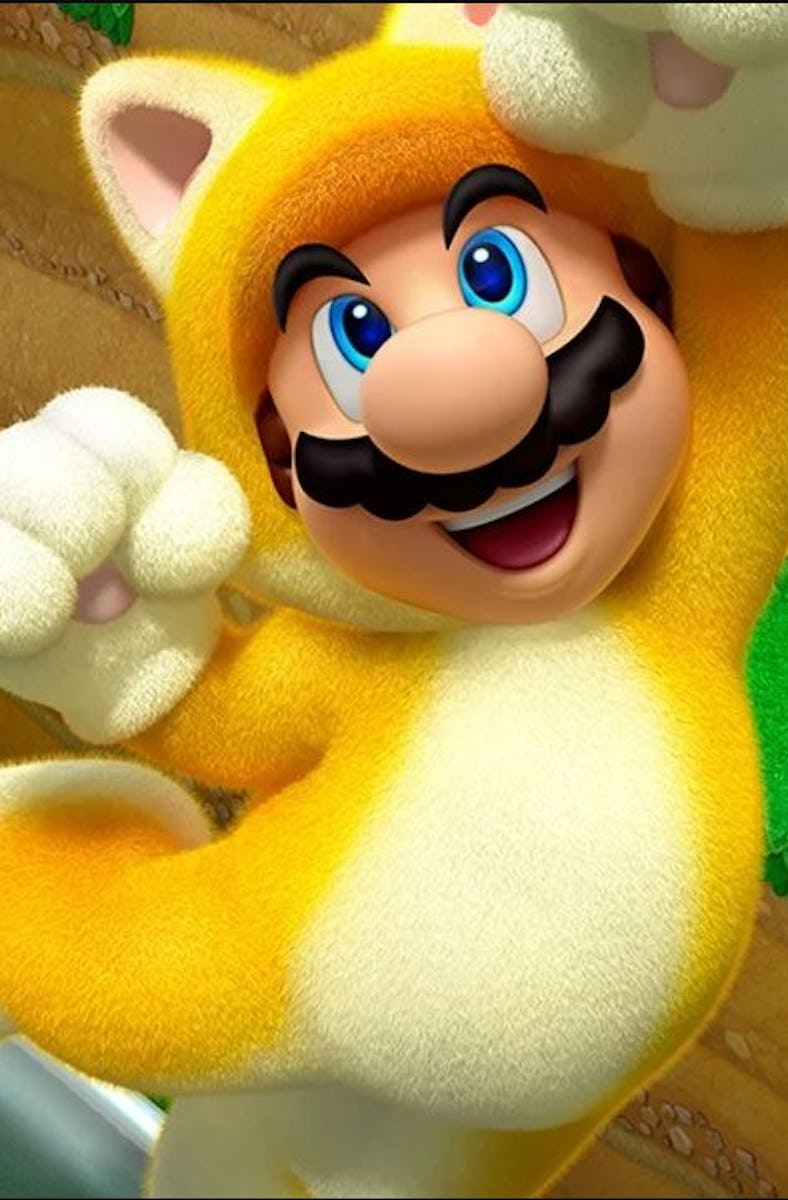10 Years Ago, The Most Overlooked Mario Game Predicted the Future
The cat’s meow.

Few things in life are better than being right. Whether we’re talking sports scores, trivia or bitcoin, the pure dopamine hit of being absolutely correct is an unparalleled experience. The problem is that sometimes you can be right and not know it. Hindsight is only 20/20 when enough time has passed to bring things into focus. And for Nintendo, only with the 10-year anniversary of one of its most acclaimed games do we now know that it got a lot of things right.
Super Mario 3D World launched on Wii U on November 21, 2013. As you’d expect, the reviews were glowing. It’s a flawless Mario game that ticks all the boxes: Great levels, approachable difficulty, and more. There’s always a lot to love about Mario. Still, it was impossible to know at launch what we know now — Super Mario 3D World was a trendsetter.
The introduction of Cat Mario has proven to be the most endearing legacy of Super Mario 3D World. You may even recognize him in The Super Mario Bros. Movie. The adorable “cat mode” bestowed upon players by way of the Super Bell power-up isn’t limited to just Mario, but its introduction on the Wii U gave fans their first taste of mustachioed feline ferocity. Adding a new power-up to something as iconic and well-designed as the Mario franchise was no easy feat. Nintendo nailed it. The suit’s claw attack adds offense and a way to smash obstacles horizontally, adding depth to the level design. The diving attack adds mobility, and the power-up made climbing a game-changer long before Breath of the Wild.
In the decade since, Cat Mario has become one of the most popular power-ups despite appearing in just a handful of games. Cat Mario merchandise is everywhere, from plushies to toys to Christmas ornaments. And in The Super Mario Bros. Movie, Mario could’ve easily defeated Donkey Kong with a Hammer Bros. suit or a Cape Feather, but the mass market appeal of Cat Mario cannot be denied.
He’s gotta be strong, and he’s gotta be fast, and he’s gotta be fresh from the fight.
In an era where games are often single-player or, at best, multiplayer online, Nintendo keeps the working man in their thoughts with a commitment to couch co-op. And although four player co-op had appeared in previous Mario games, the co-op in Super Mario 3D World is widely recognized as the true co-op mode for 3D Mario games. Why? Previous co-op modes featured Mario, Luigi, and two toads. Now, Peach was added to the mix and, even more importantly, each character played differently for the first time since 1988’s Super Mario Bros. 2. Mario was the Jack of all trades, Toad the fastest sprinter, Luigi the floatiest jumper, and Peach cornered the market on being floatiest floater.
This style of co-op found its way to the Nintendo Switch in both New Super Mario Wii U Deluxe and the remastered Super Mario 3D World + Bowser’s Fury. Four-player co-op is also featured in Super Mario Wonder, after a conspicuous absence in the previous mainline release Super Mario Odyssey. See, Nintendo understands it isn’t always about selling games, it's about selling joy.
Four-player couch co-op is here to stay.
Speaking of joy, let’s talk about Captain Toad. Super Mario 3D World’s Captain Toad minigames, which tasked players with guiding the plucky explorer through 3D mazes built inside a rotating cube, proved so popular that they led to the development of Captain Toad’s Treasure Tracker for the Wii U. It sold more than 1 million copies. The Switch remake did double that. The minigame from Super Mario 3D World was so good the concept moved 3 million units. That’s a lot of Cat Mario plushies
Super Mario 3D World continues to age well, and seems to exert more influence over the direction of the franchise than its more recent cousin Super Mario Odyssey. Do you think we’ll see Cappy in the next movie? I doubt it. If Bower’s Fury is any indication of what’s next, it seems like Nintendo is leaning into the liminal space between 2D platforming and 3D open worlds — one that Super Mario 3D World so deftly defined. We’ll have to wait and see until the next game is upon us. And if the trend holds true, we’ll have to wait a decade after that to see if Nintendo was right all along.
This article was originally published on